Close UP
Refugee & Migrant Festival ~Take a first step to get to know refugees and migrants living next to you through "fun".~
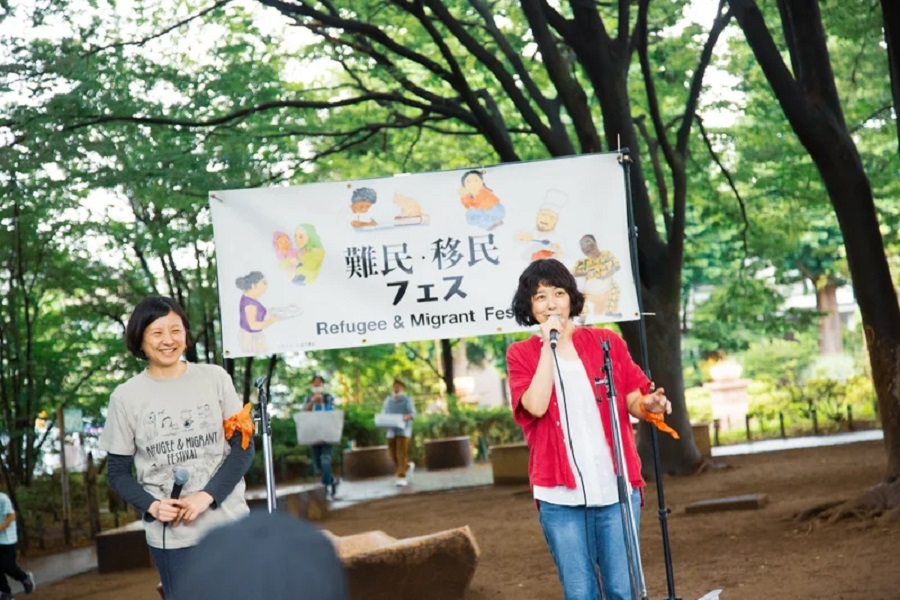
©️Refugee and Migrant Festival Executive Committee
In May 2023, the 3rd Refugee and Migrant Festival was held at Heisei Tsutsuji Park in Nerima. The charity-style festival, where people from refugee and migrant backgrounds brought their specialties in cooking, handicrafts, songs, and performances, attracted approximately 3,600 people in one day. And, participants enjoyed interacting with each other. We spoke with Ms. Maki Kanai, a writer, and illustrator, who is the founder of the festival and also a member of the executive committee.
Use the "Festival" as a gateway to learn about refugees and migrants living next to us.
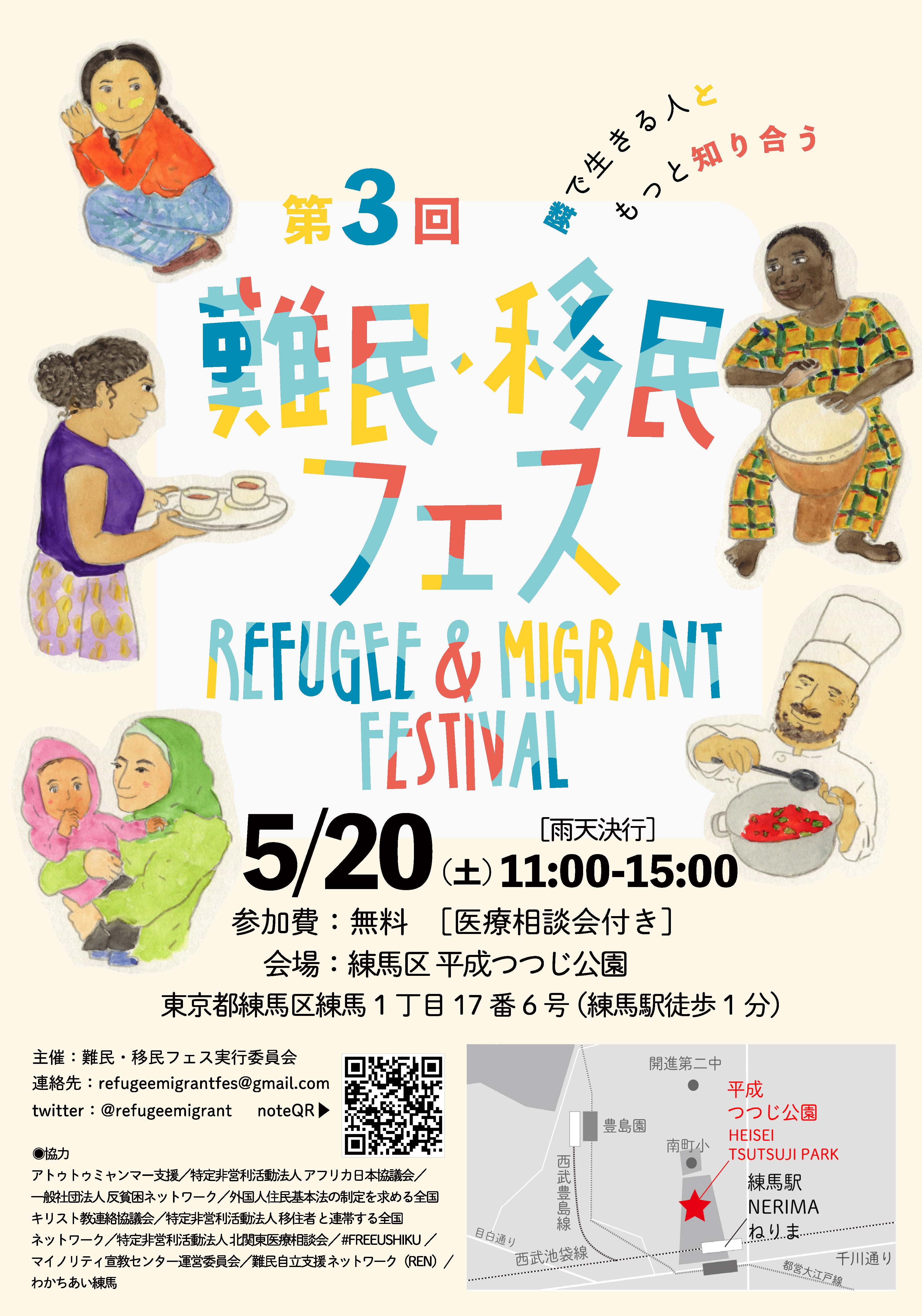
©️Refugee and Migrant Festival Executive Committee
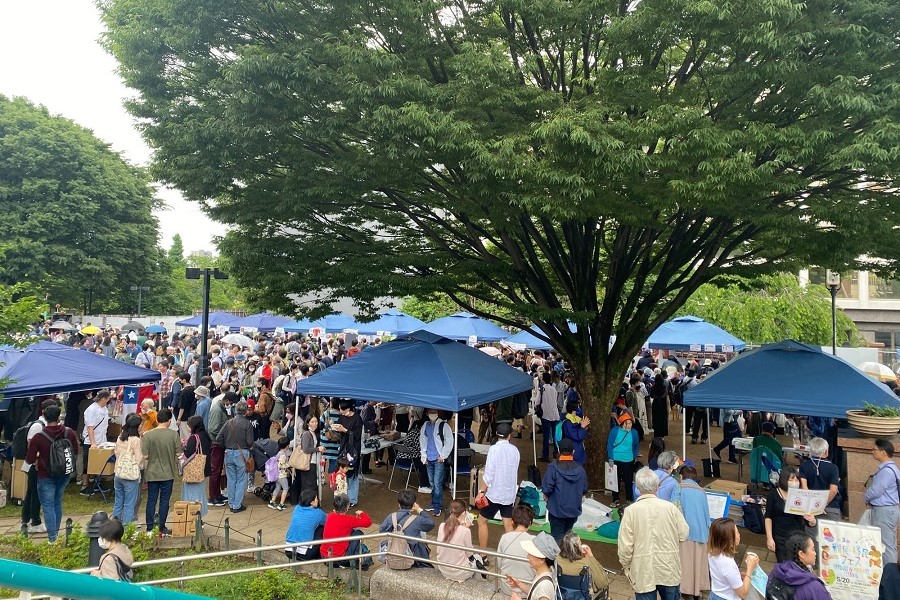
©️Refugee and Migrant Festival Executive Committee
The first Refugee and Migrant Festival was held in June 2022, the second in November 2022, and the third, this year, in May 2023. The festival lasts only one day. However, the number of visitors has increased with each event, with approximately 800 people attending the first festival, 1,200 people at the second, and 3,600 people at the third. Visitors range from those who are interested in supporting refugees to those who came to enjoy multi-cultural food because they were unable to travel due to COVID-19, and to local residents who just happened to be passing by.
There were more than 10 stalls in total, including food stalls from Myanmar, Sri Lanka, Ghana, Tunisia, and other countries, as well as handicraft stalls offering goods such as accessories and bags. There were also gospel and rap performances on the stage. Each of them was prepared and provided by refugees and migrants who moved to Japan from various countries. Sales and donations were collected by the executive committee and will be used for festival operations, living assistance for needy refugees and migrants, as well as medical support.
"Some of those who provide food and music are not able to return to their home countries because of conflict or persecution, and some have been separated from their families. We hope that through a fun space such as festival would be a first step in learning about refugees and migrants," says Ms. Kanai.
Interactions like the one mentioned in the impressive phrase on the poster, "Get to know people who live next to us," were spontaneously occurring here and there throughout the festival venue.
The starting point was the excellent empanadas.
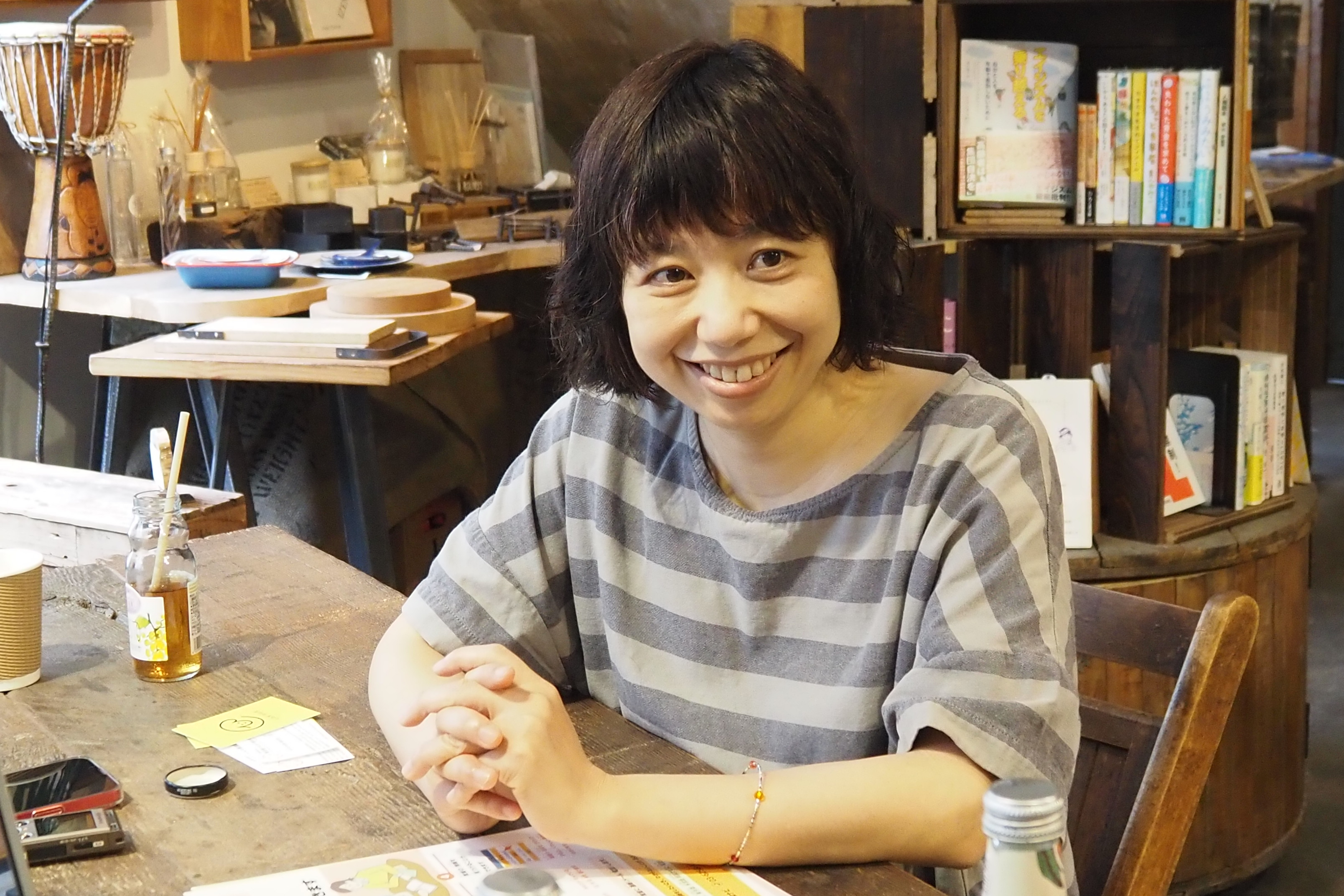
In recent years, we hear more and more news and topics about refugees and migrants. However, there are still many people who feel that those stories are on the other side of the media, or in some faraway country, because they do not have such people close to them. Ms. Kanai says she used to be one of those people who thought like that.
The impetus for the launch of the Refugee and Migrant Festivals came in January 2022, when Ms. Kanai visited Mr. P. from Chile, with another founder of the festival; sociologist Ms. Sachi Takaya.
"Mr. P. - who was a professional cook in his country - was holding a party where he served his homemade food to his supporters, and that's where I had a very delicious empanada (like a meat pie). He is on provisional release* and cannot be employed due to work restrictions. His food is so good, but he can't provide it in a restaurant. We thought it would be a waste if a lot of people could not enjoy this dish. There are many people on provisional release who cannot work even though they have various special skills, other than Mr. P. We talked about the possibility of creating a fun place for these people to demonstrate and showcase what they are good at, like a form of a charity festival," says Ms. Kanai.
Professionals in the field of support, connected through the NPO Solidarity Network with Migrants Japan, of which Ms. Takaya is a director, as well as editors, photographers, and other professionals in the field of conveyance through Ms. Kanai's connections, gathered as members of the executive committee. Less than six months after the idea was conceived, the first "Refugee and Migrant Festival" was held in June 2022.
*The provisional release is a system that allows foreigners who have failed to obtain residential status in Japan to live outside of immigration facilities with restrictions on travel and work.
Ms. Takahashi, the vice chairperson, who has been involved in activities since 1999, the year after AJAPE was established, has a very unique background.
A Place Where Refugees and Migrants May Connect with People and Society, a Place Where Their Talents May be Illuminated.
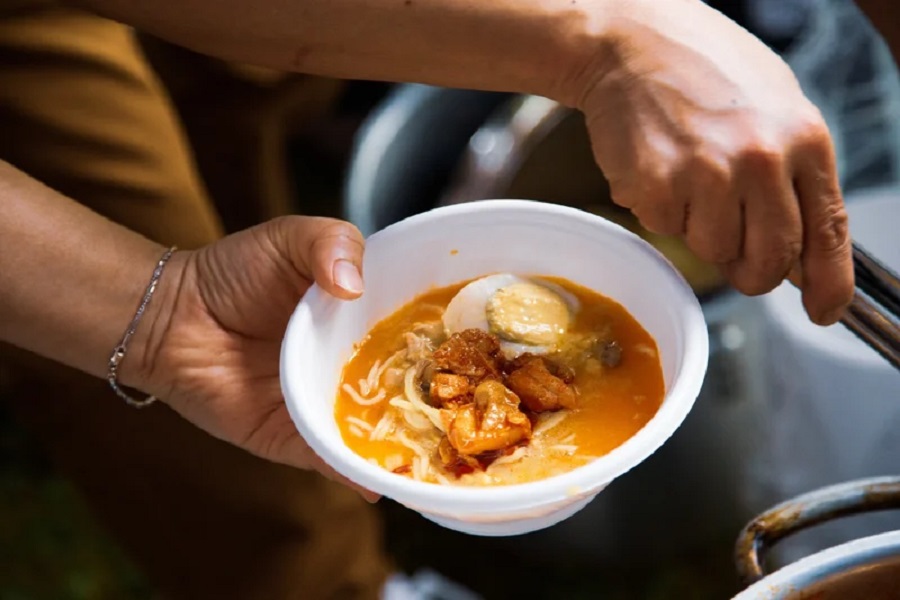
©️Refugee and Migrant Festival Executive Committee
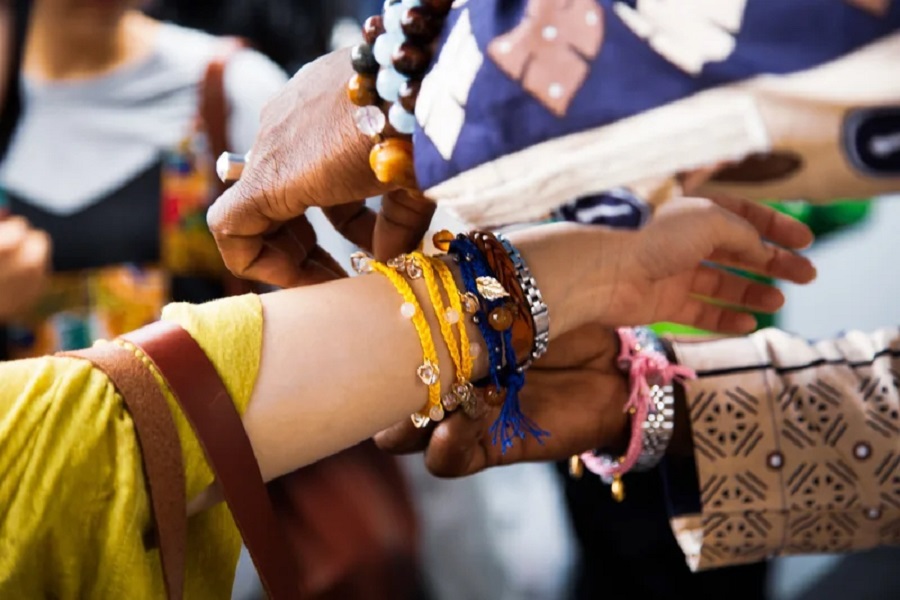
©️Refugee and Migrant Festival Executive Committee
It was the supporters who brought together the refugees and migrants attending the festival. "If there is such a place, we would like to invite (refugees and migrants) to participate because it would make them happy," the supporters called out to the refugees and migrants they have connections with. Those who participated once said they would definitely like to participate again, and the number of applicants is increasing each time.
"It seems like (those who attended) have been talking about it for over a week after the festival. 'When are you going to do the next one?' I am asked every time I see them. Many of the participating refugees are unable to work due to work restrictions, so they have no money and they have no choice but to stay home. Many of them have no social connections and are becoming more and more lonely and anxious every day. But from the festival preparation period to the day of the festival, everyone seems to be really happy and lively. They seem so busy and yet so happy about it. I think they are really happy that someone is happy with what they are good at, such as having their food eaten or receiving applause for their performance." Ms. Kanai also says happily. Ms. Kanai says that one of the supporters once said, "I have never seen this person so happy and smiling in all the years I have supported them." Recently, the Refugee and Migrant Festival has more and more opportunities to participate in events hosted by other organizations.
"It would be great if we could involve more people and work together. People with provisional-release status need to apply in order to cross the prefectural border, so it would be great if this kind of fun event could be created in various areas."
The festival's "space" is protected by everyone, including committee members, refugees and migrants, and participants.
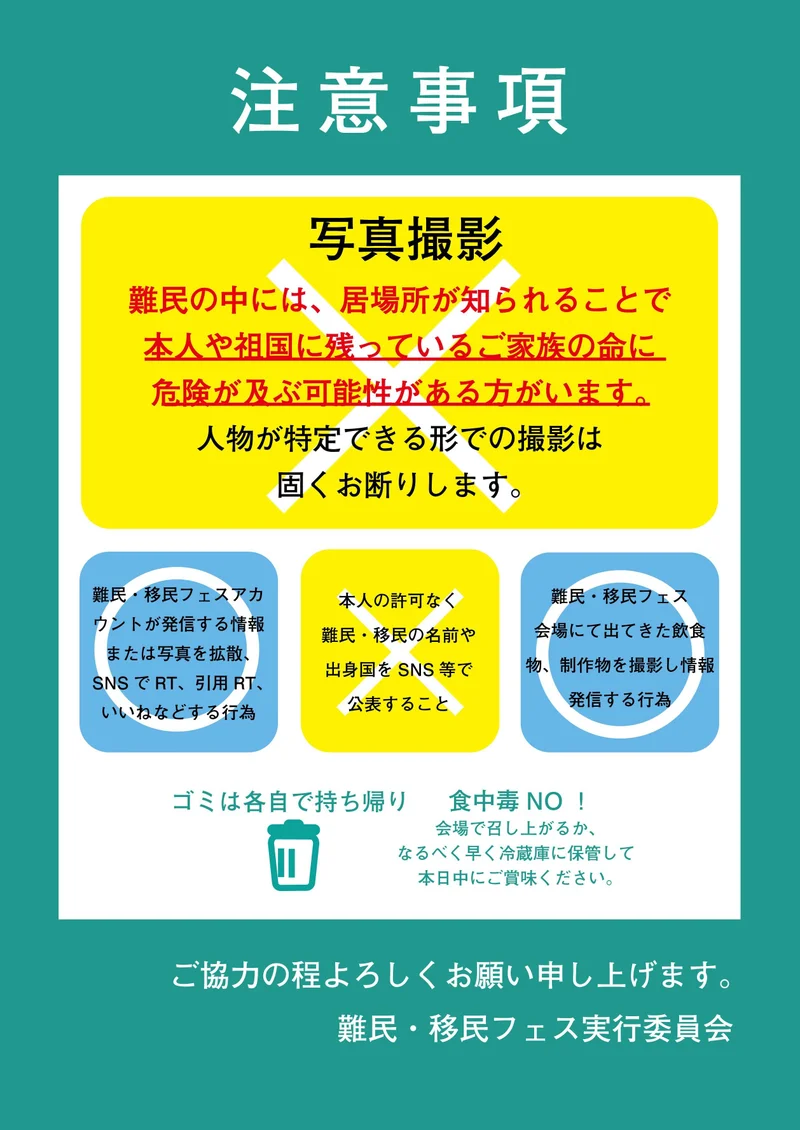
©️Refugee and Migrant Festival Executive Committee
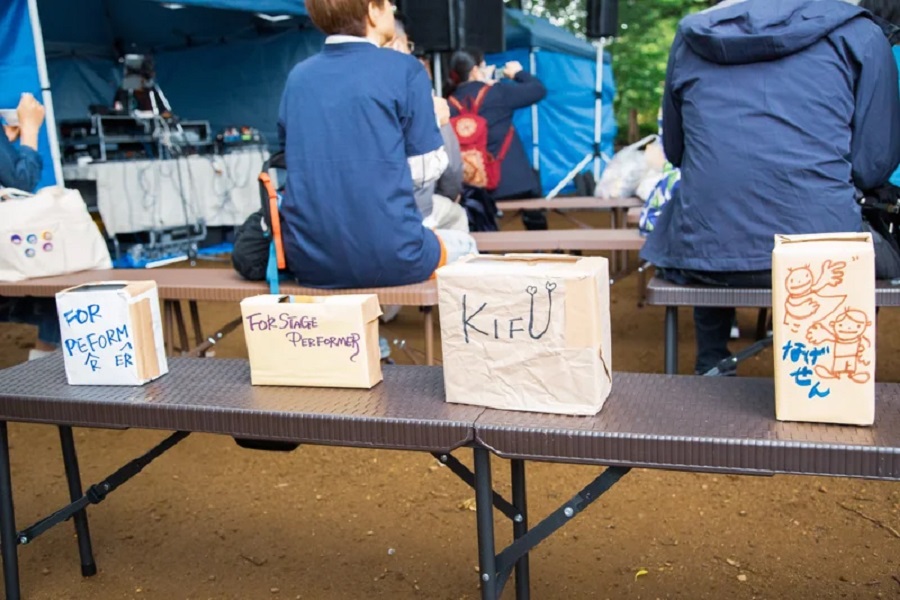
©️Refugee and Migrant Festival Executive Committee
Some of the participating refugees have fled their home countries because their lives are in danger. Some were concerned that their participation in the festival would make their location known through photos or other means; putting them and the families they left behind in their home countries in danger. After repeated discussions, the Executive Committee decided to prohibit all photography that would allow people to be identified, in the venues. The Executive Committee informed visitors about their decision through SNSs, posters, and announcements on the day of the event, and also held a briefing for the media before the event.
"When it comes to festivals, we all want to take photos and post them on SNSs, don’t we? We were torn, but most of all, we wanted the festival to be safe and enjoyable for everyone," says Ms. Kanai.
At the site on the day of the event, visitors were seen telling each other, "It seems that you are not allowed to take photos now!"
"Before we held the first event, we honestly worried that no one might show up, or that we might be scolded for gathering people in such a tough situation and having fun with them. But, in fact, many people came together and supported us by shopping and donating money. We consider those who come to our events not as guests, but as fellows who participate together. They all protect this 'space'," she says.
As "Friends" or "Fellows" Who do Fun Things Together
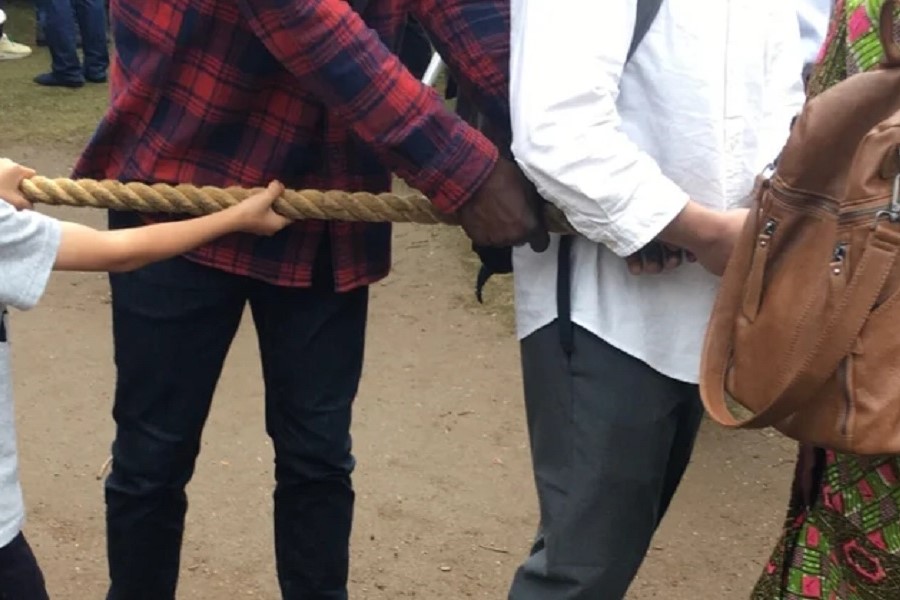
©️Refugee and Migrant Festival Executive Committee
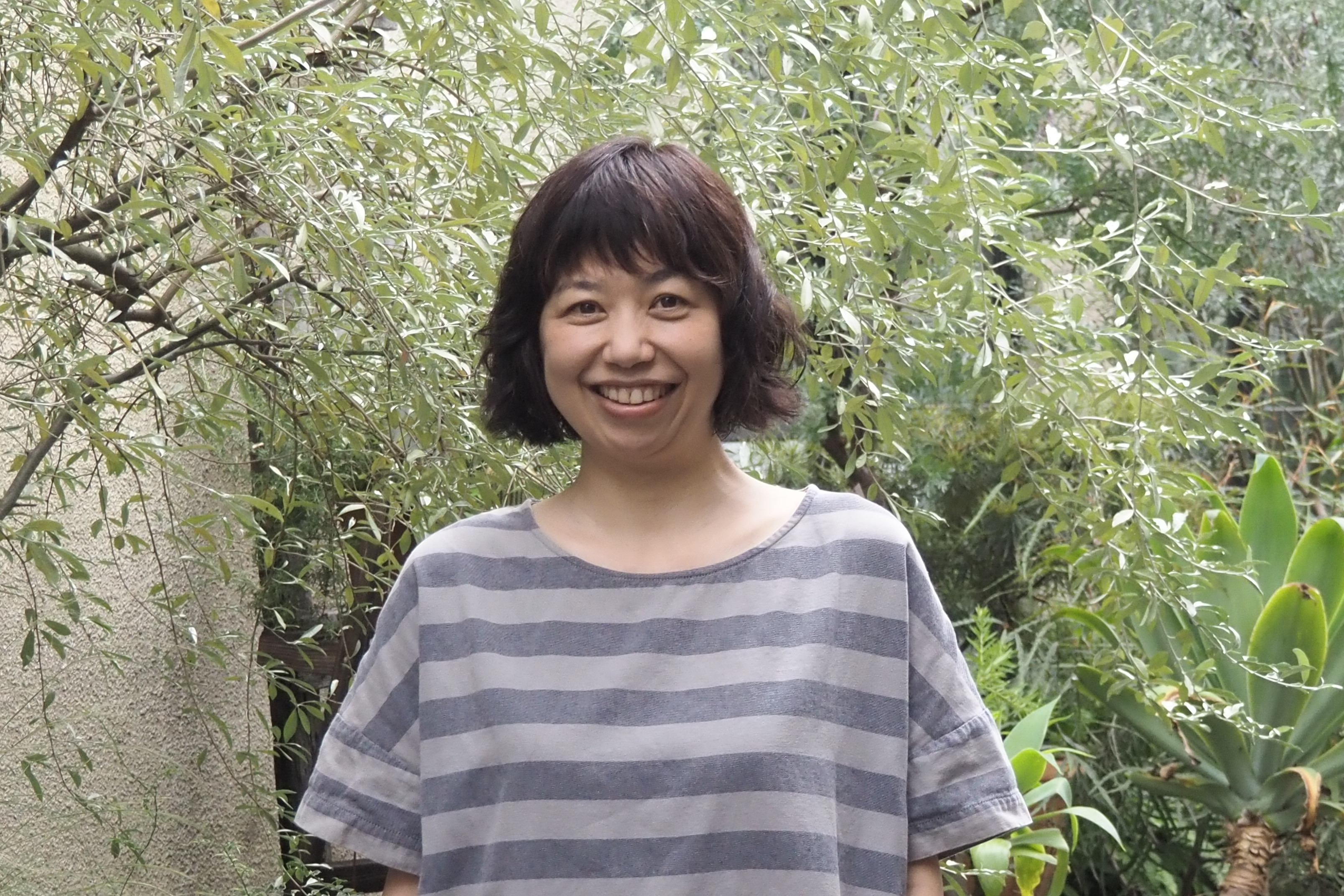
"People who come to the festival really buy a lot of food and goods. Perhaps many people want to do something for refugees and migrants but don't know where to start. As they talk and have a good time together (with the refugees) at the festival, even stories about people they thought were on the other side of the news started to bring someone's face to their mind like, 'That person!'. Some people say, 'Every time I see something I bought, I remember that person.'" says Ms. Kanai.
At the third festival, everyone played tug of war at the end of the event. Ms. Kanai says that the sight of adults, children, refugees, migrants, and Japanese all mixed together, smiling and pulling ropes, seemed to symbolize the festival. Participants commented that they felt the weight of human life, and that they did not want to let go of the hand holding the rope that connects them to refugees and migrants, and they felt they must not let go.
Ms. Kanai says, "Even now, I am not a supporter myself, just a friend. I am not providing any support, I am just having fun and playing together (with refugees and migrants). I would be happy if you would come to the festival and find it interesting, and I hope you would feel free to engage in fellowship without thinking it too difficult."
Someone from somewhere else, that until yesterday we just passed by…. As we meet and engage with each of them and learn about their backgrounds, we may become friends or fellows. The Refugee and Migrant Festival may be the first step toward that.
*This article is based on information available at the time of the interview. For the latest information, please contact the organization directly.
